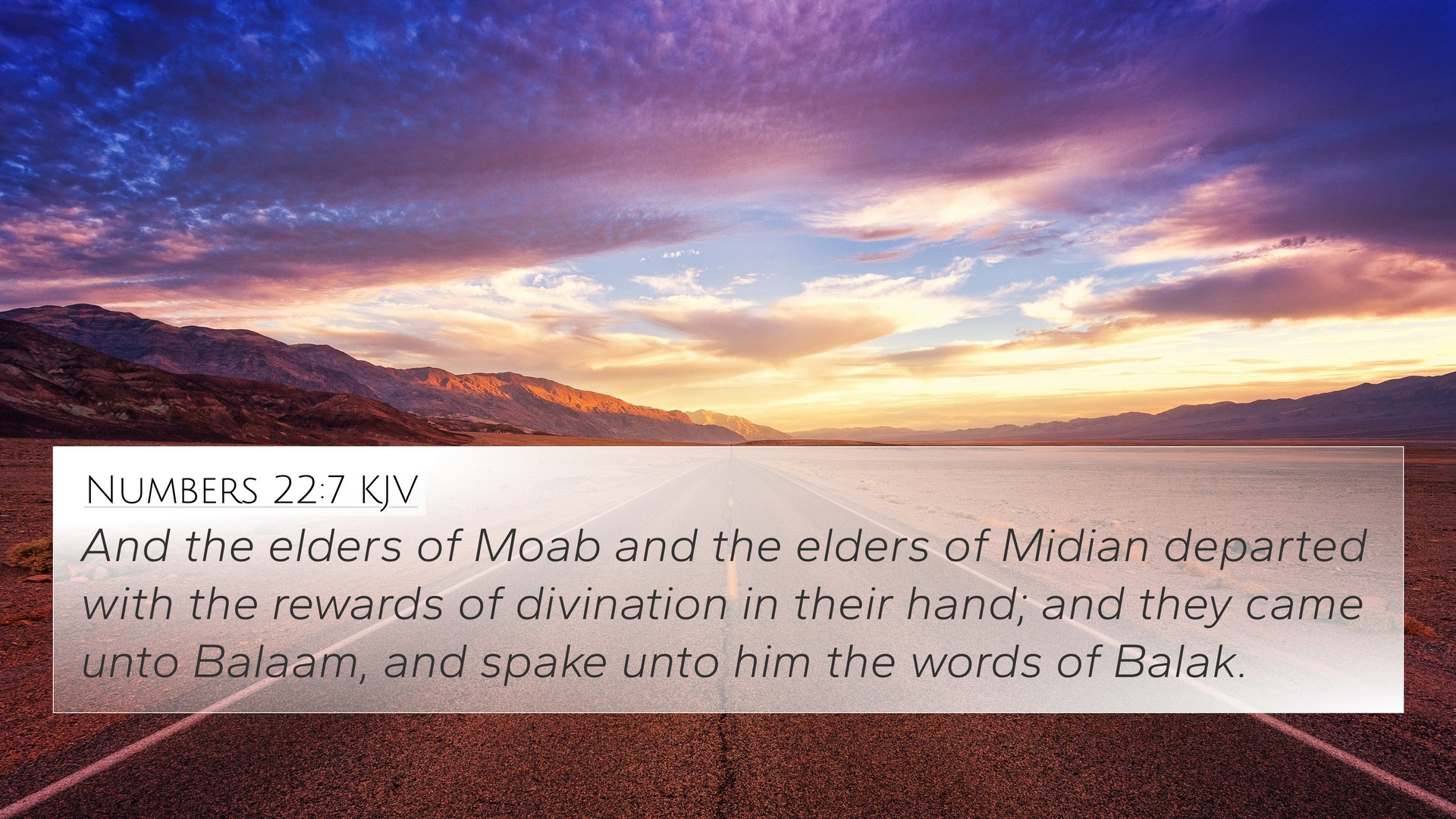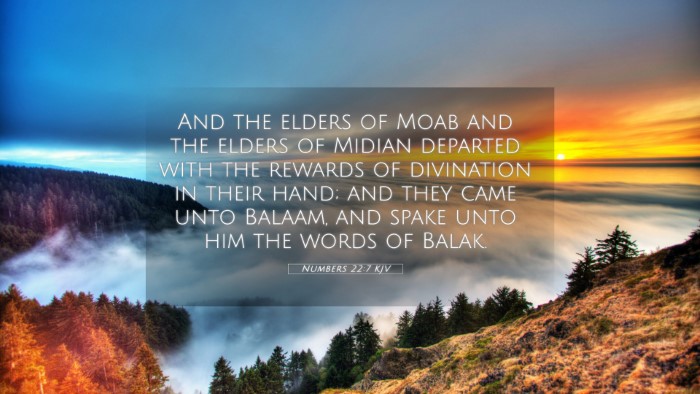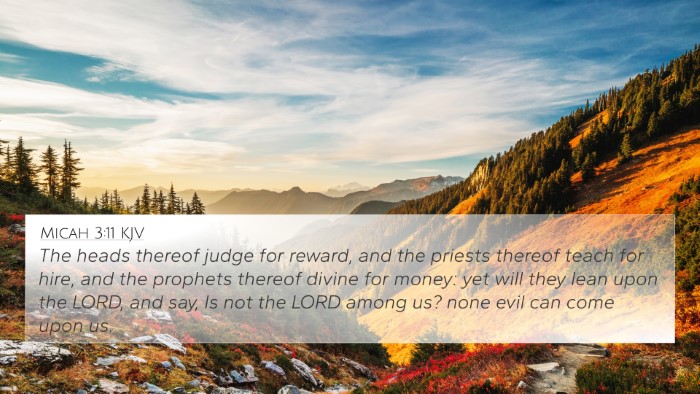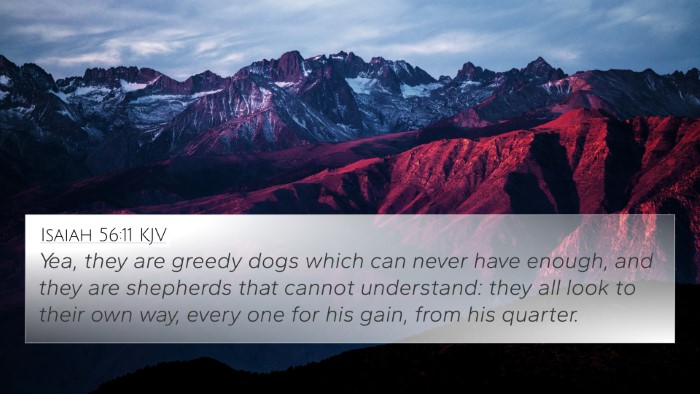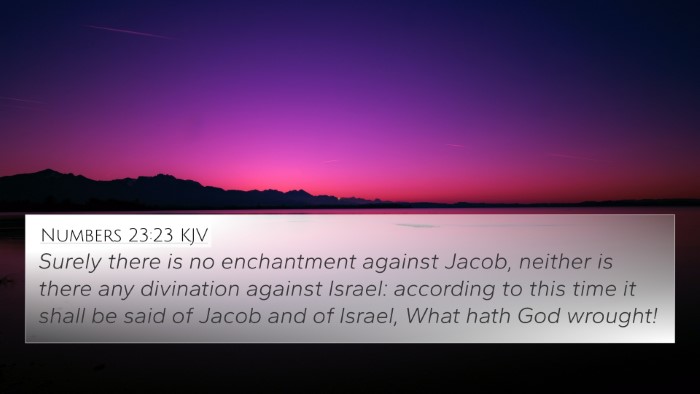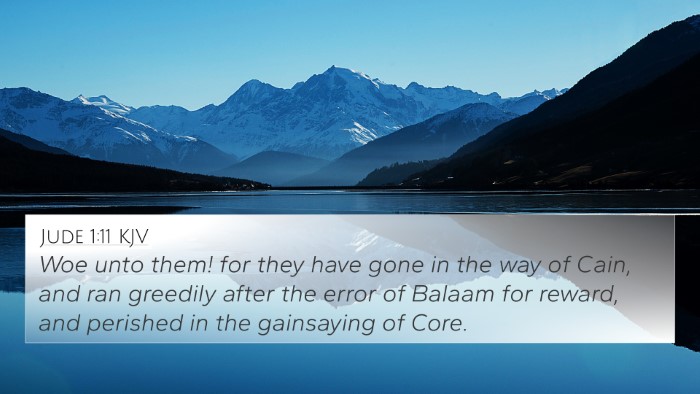Understanding Numbers 22:7
In the context of Numbers 22:7, we encounter a significant episode in which Balak, the king of Moab, sends messengers to summon Balaam, a diviner, to curse the Israelites. This verse states:
“And the elders of Moab and the elders of Midian departed with the rewards of divination in their hand; and they came unto Balaam, and spake unto him the words of Balak.”
Summary of Meaning
This verse highlights the attempt of Balak to seek supernatural aid against Israel, showcasing the cultural practices of divination and the importance placed on spiritual authority in ancient times.
Commentary Insights
- Matthew Henry: Henry emphasizes the desperation of Balak, framing the Moabite king's request as an anxious plea for help against perceived threats. He also discusses how reliance on divination reveals a lack of trust in God’s sovereignty.
- Albert Barnes: Barnes notes that this event reflects the broader narrative of Israel's journeys and the fears of surrounding nations. He connects the actions of Balak to the broader theme of opposition against God’s chosen people.
- Adam Clarke: Clarke provides a detailed breakdown of the customs involved in such requests for cursing, illustrating the financial motivations behind Balaam's involvement. He points out the pagan rituals involved in seeking divine favor through cursing.
Thematic Connections
This verse serves as a profound illustration of themes such as:
- Divine Sovereignty: The attempts to thwart God's plans are futile, as God’s will prevails over human intentions.
- The Nature of Prophecy: Highlighting the distinction between true prophecy and divination, this verse foreshadows the true purpose of Balaam's summons.
- Human Ambition vs. Divine Purpose: Balak’s fear and ambition lead him to seek a shortcut to power through spiritual means, reflecting the continuing struggle between human desires and divine law.
Related Bible Verses
Numerous Bible verses resonate with the themes of Numbers 22:7. Here are 10 related Scriptures that provide further insights through cross-referencing:
- Deuteronomy 23:4-5: Discusses the historical context of Moab and God’s prevention of Israel from cursing them.
- Joshua 24:9-10: Reflects on God's intervention against Balaam’s intentions to curse Israel.
- 2 Peter 2:15: Warns about false prophets, referencing Balaam's greed and how his story serves as a cautionary tale.
- Revelation 2:14: Mentions the teaching of Balaam as a warning to the church about compromise with worldly ways.
- Romans 8:31: Assures believers that if God is for us, who can be against us, paralleling the protection over Israel.
- Exodus 20:5: Discusses God's jealousy in response to idolatry, linking to Balaam's initial motivations.
- Micah 6:5: Reminds Israel of their past experiences with Balak and Balaam, reinforcing God’s faithfulness.
- 1 Peter 5:8: Encourages vigilance against spiritual adversaries, connecting fears similar to those of Balak.
- Isaiah 54:17: Proclaims that no weapon formed against God's people will prosper, echoing the protective theme in Balaam's story.
- Galatians 5:17: Relates to the struggle between spiritual and human desires, similar to Balaam's internal conflict.
Conclusion
In studying Numbers 22:7, we glean significant insights into the dynamics of divine guidance and human opposition. The interconnectedness of biblical themes and the relationships among various Scriptures provide a rich tapestry for understanding God’s providence. Through comparative Bible verse analysis and thematic Bible verse connections, we learn the value of trust in God's plans and the futility of relying on worldly methods for spiritual insight.
